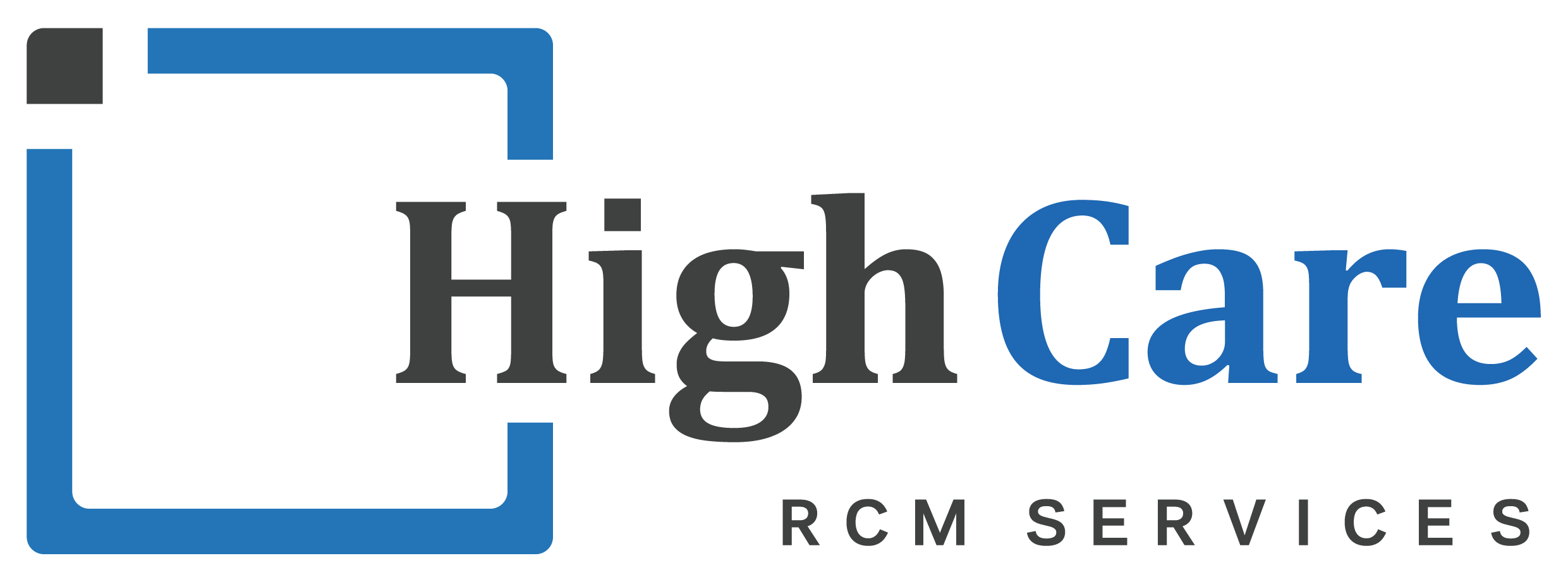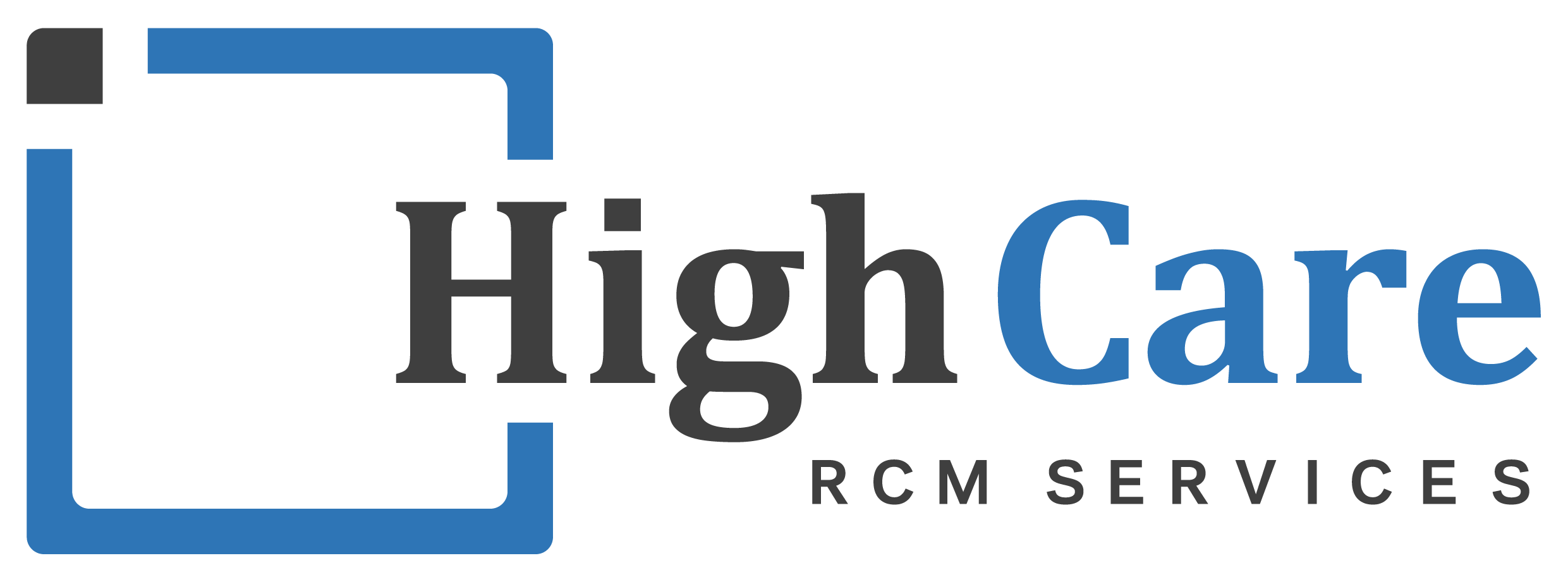- 14, Kathiresan Street, Pallipalayam corner, Kumarapalayam – 638183
Overview of No Surprises Act: Strategies to Improve Compliance
High Care RCM
The No Surprises Act (NSA) has revolutionized the healthcare industry by addressing the long-standing issue of surprise medical billing. With the ban on balance billing, providers are required to bill patients based on in-network rates, protecting them from exorbitant charges. While the NSA brings welcome relief to patients, it also poses challenges for healthcare providers navigating the complex landscape of Revenue Cycle Management (RCM). In this article, we will explore the key challenges of NSA compliance and provide actionable best practices to overcome them.
Overview of No Surprises Act
The No Surprises Act aims to protect patients with health insurance from unexpected medical expenses by prohibiting out-of-network cost-sharing (like coinsurance or copayments) for emergency and some non-emergency services. They can’t be charged more than in-network cost-sharing for these services. Additionally, the act bans out-of-network charges and balance bills for certain additional services, (like anesthesiology or radiology) when provided by out-of-network providers during a visit to an in-network facility.

Furthermore, the act ensures that patients without health insurance or those who choose to pay directly receive a good faith estimate of the cost of care before any services are provided. Prior to this legislation, patients often faced exorbitant bills due to surprise medical billing practices, leaving them with financial burdens and uncertainty about their healthcare costs.
Overall, the No Surprises Act aims to protect both insured and uninsured patients from the financial burden of surprise medical bills and balance billing. It promotes price transparency, standardized billing practices, and fair reimbursement rates, contributing to a more equitable and patient-centric healthcare system for all.
Best Practices to Improve Compliance
Embrace Transparent Communication:
Transparent communication with patients is fundamental to NSA compliance. Ensuring that patients are well-informed about their rights, potential out-of-network services, and the prohibition of balance billing is key to maintaining a positive patient-provider relationship.
Develop easy-to-understand patient educational materials, including pamphlets, brochures, and website content, that outline the NSA’s provisions and how it impacts billing. Use multiple channels to communicate with patients and offer them avenues to seek clarification on billing-related matters.
Educate and Train Staff:
One of the major steps in compliance with the NSA is educating and training all relevant staff members, from front desk personnel to billing and administrative staff. A comprehensive understanding of the NSA’s provisions is crucial to ensure that every team member is aligned with compliance goals.
Conduct regular training sessions to educate staff on the intricacies of the NSA, focusing on its impact on billing practices, patient communication, and dispute resolution procedures.
Strengthen In-Network Partnerships:
The NSA encourages providers to strengthen their partnerships with insurance companies to ensure smooth reimbursement processes. Negotiating favorable in-network contracts can enhance revenue while reducing potential disputes.
Review and renegotiate in-network agreements with insurers to align with the NSA’s requirements. Develop collaborative relationships with payers, emphasizing the value of your services and patient outcomes.
Implement Accurate Patient Identification Protocols:
Accurate patient identification is essential to prevent billing errors and ensure compliance with the NSA. Standardized patient identification practices streamline billing processes and minimize the risk of sending bills to the wrong individuals.
Integrate advanced patient identification technologies, such as biometrics or photo verification, into your registration and billing systems. Train staff to verify patient information meticulously during the registration process.
Establish a Robust Arbitration Strategy:
The NSA introduces an arbitration process to resolve billing disputes between providers and payers. Healthcare organizations should be prepared to navigate this resolution process efficiently.
Create a dedicated internal team with expertise in dispute resolution and negotiation. Ensure that all documentation related to out-of-network services is organized and readily available for arbitration proceedings.
Regular Compliance Audits:
Conducting regular compliance audits is critical to identify potential pitfalls and areas for improvement. Monitoring compliance metrics helps address recurring issues and maintain adherence to NSA provisions.
Schedule periodic compliance audits to assess adherence to the NSA’s requirements. Analyze trends in claim denials and patient complaints to identify areas of improvement and address compliance gaps.
Embracing these best practices will enable healthcare providers to navigate the complexities of the No Surprises Act successfully. By doing so, they can provide better patient experiences, maintain financial stability, and contribute to the overall improvement of the healthcare industry. High Care RCM Services is committed to assisting healthcare organizations in achieving NSA compliance and optimizing their revenue cycle management. Together, we pave the way for a future where patients and providers alike can experience increased transparency and improved financial outcomes.
Tagged: No Surprises Act, Best practices to improve compliance, Overview of NSA

